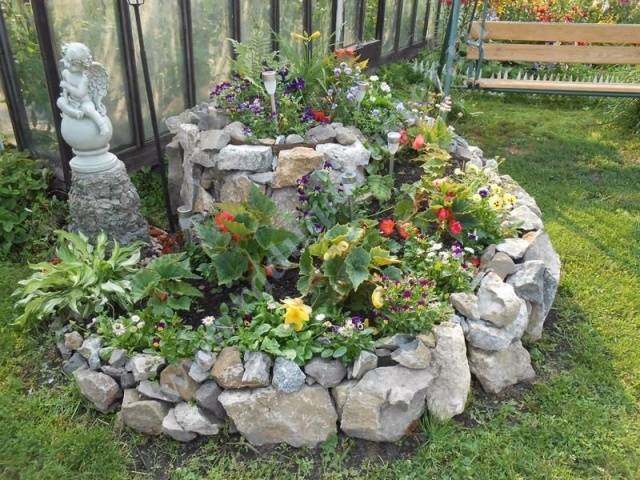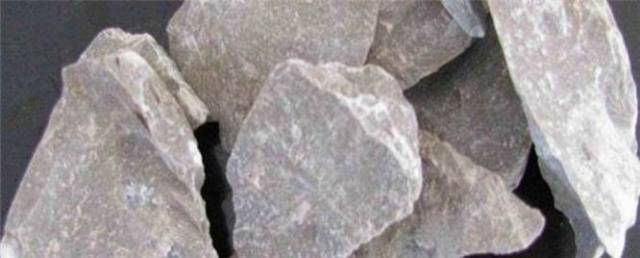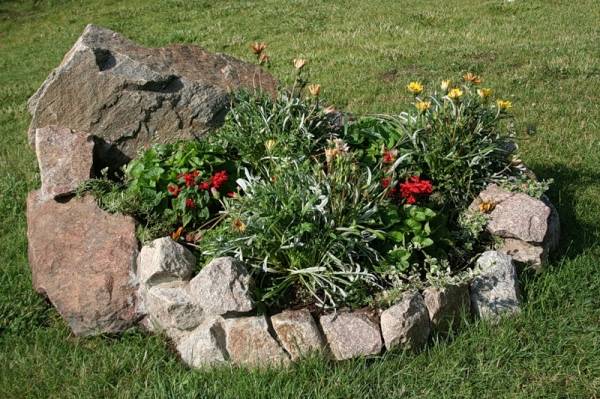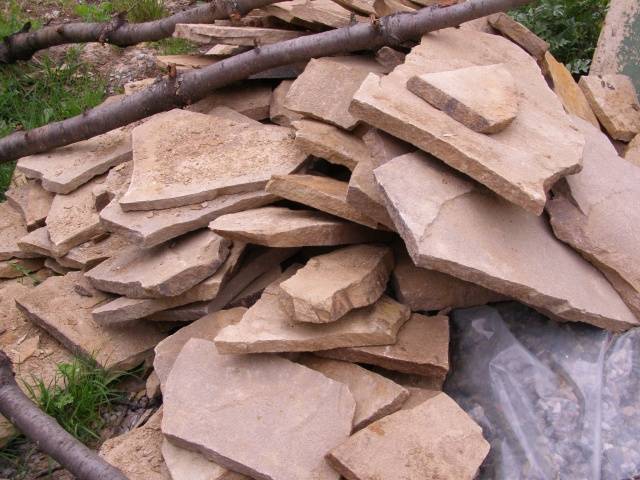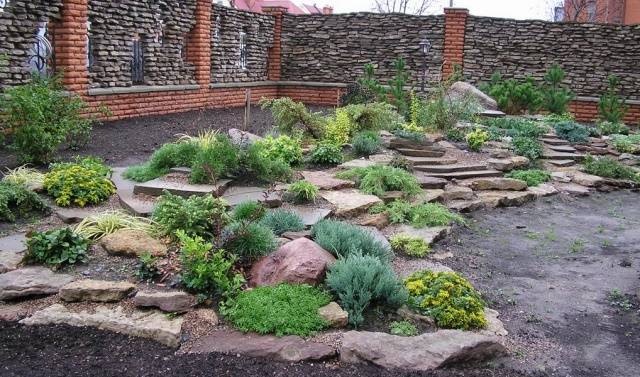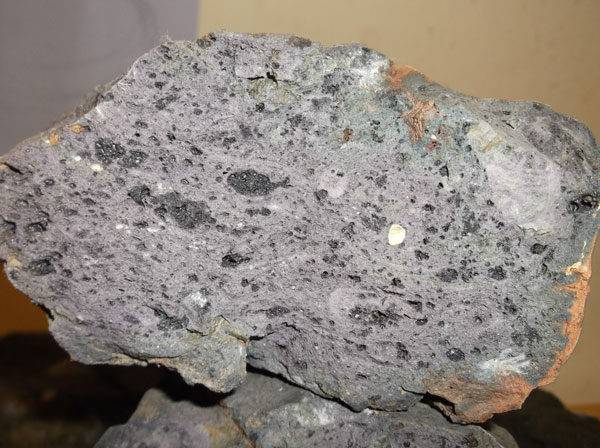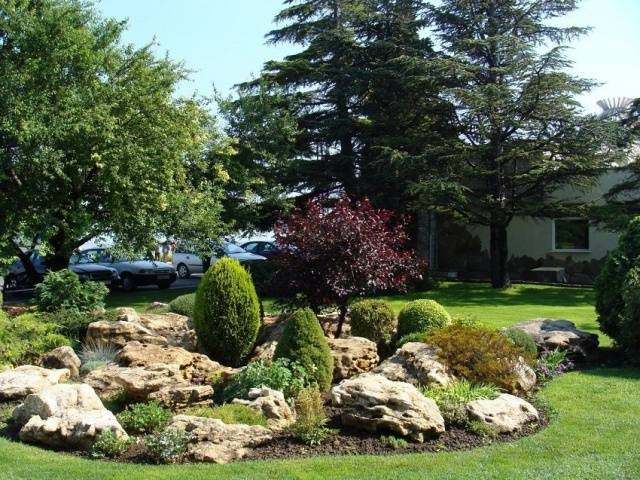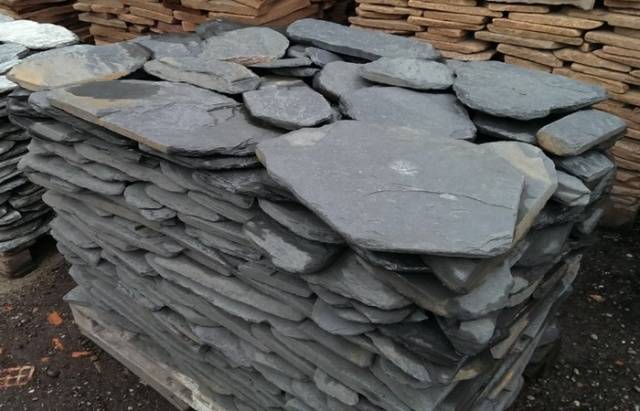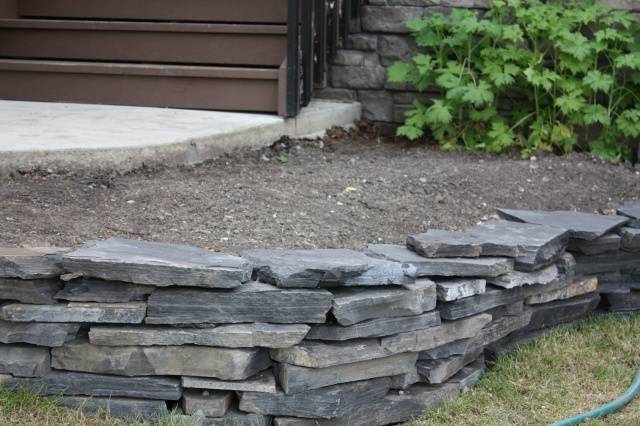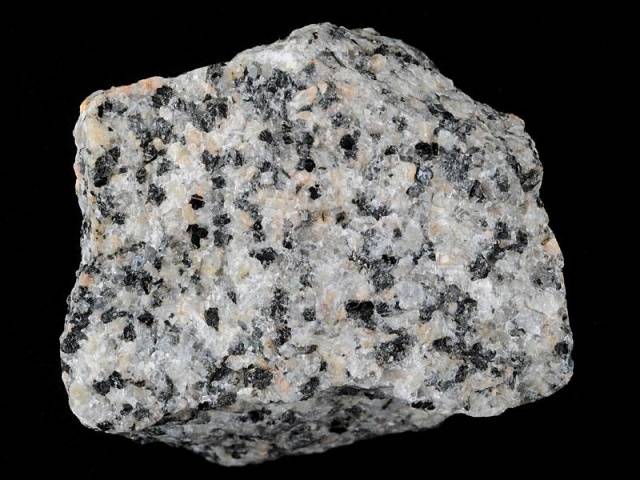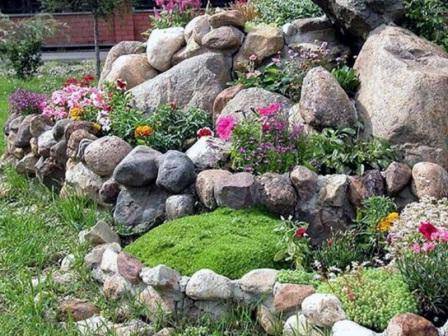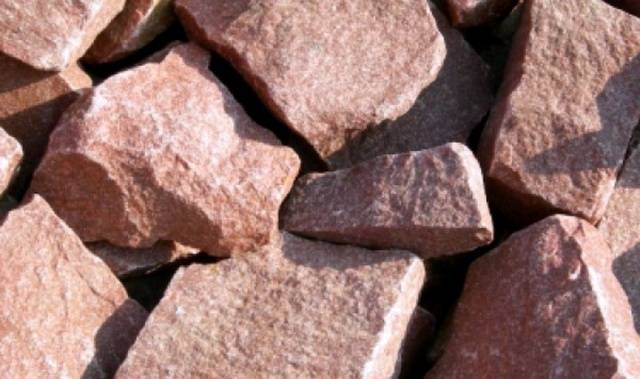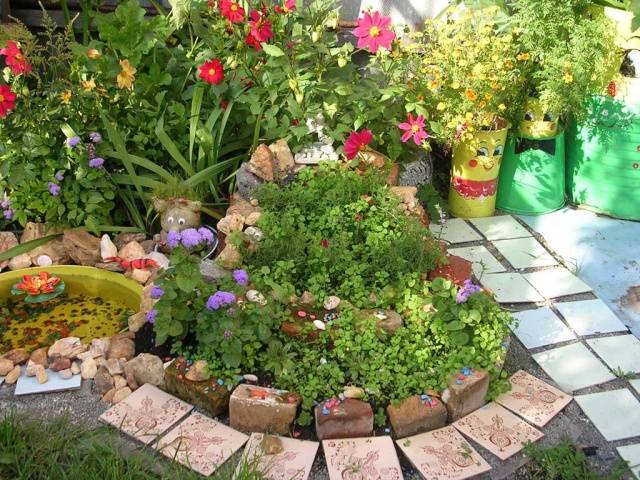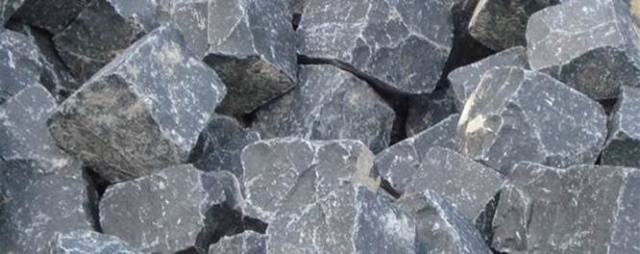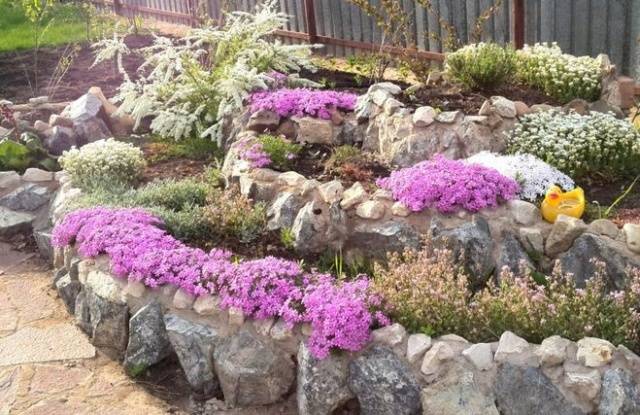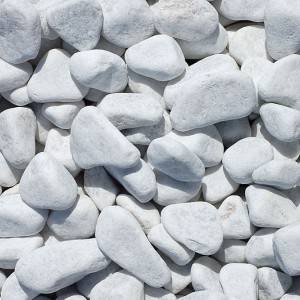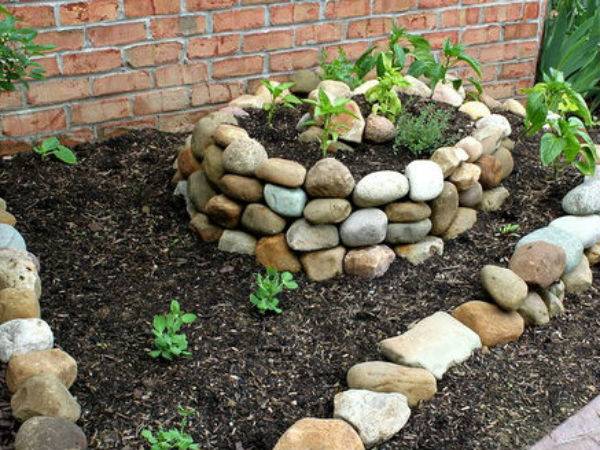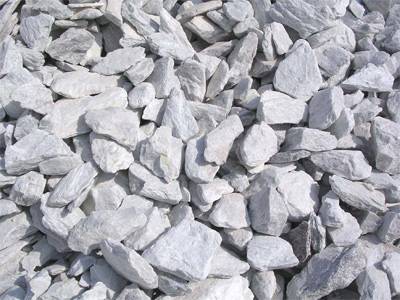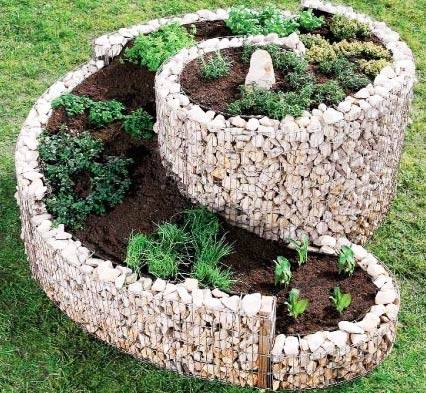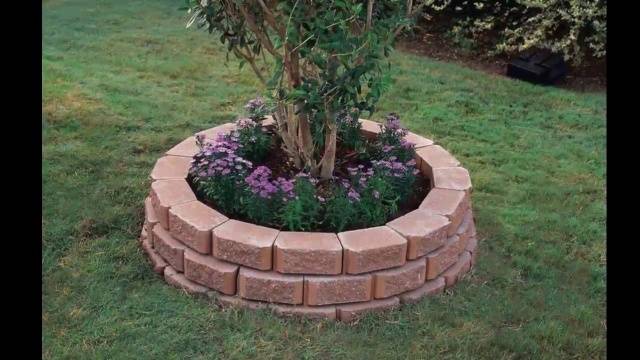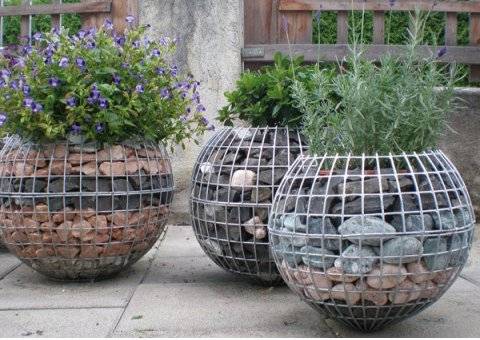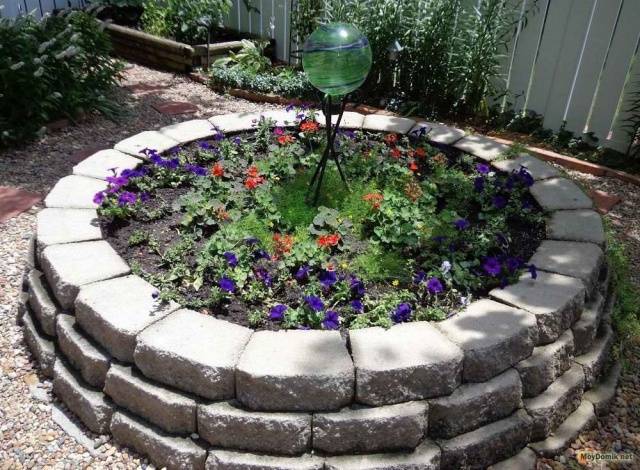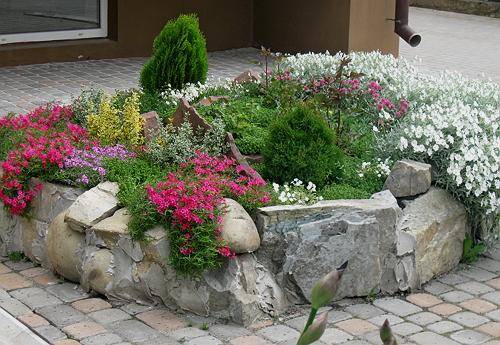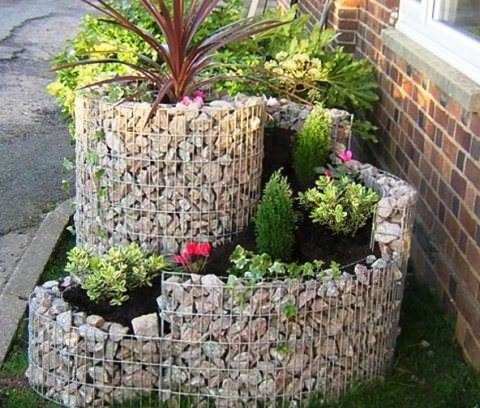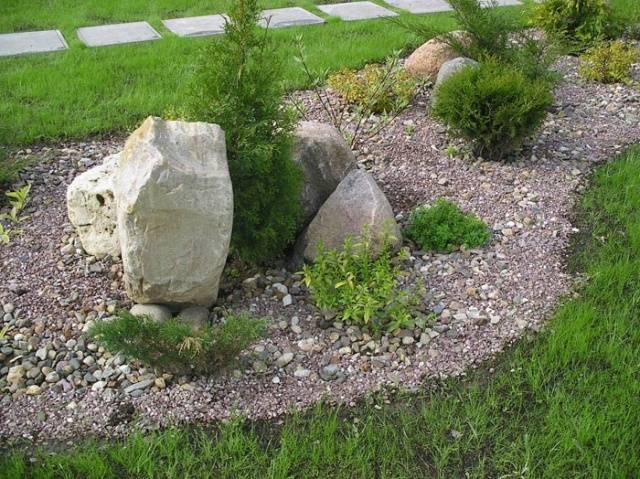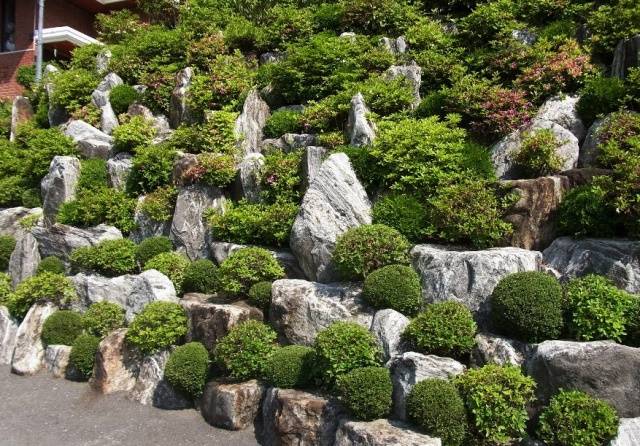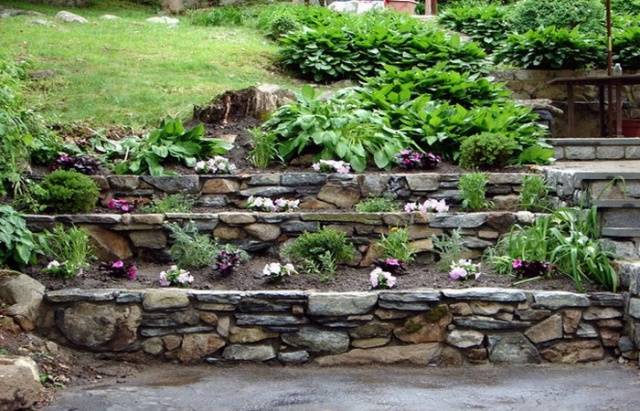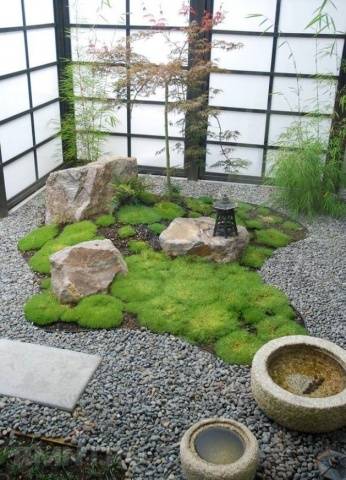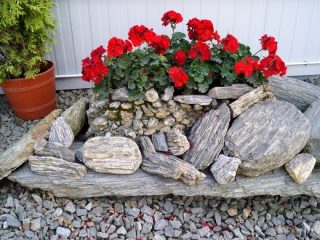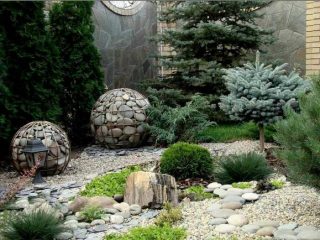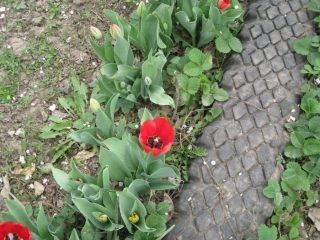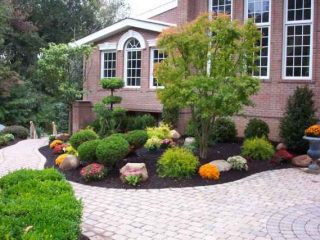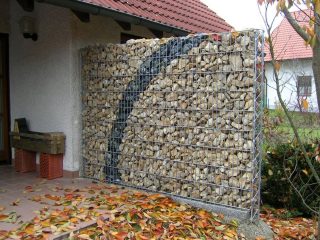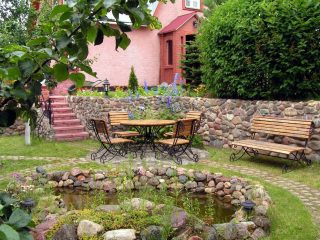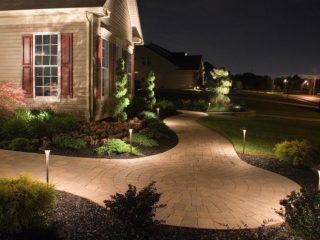Content
A beautiful and well-groomed courtyard is the pride of every owner. To put it in order, you have to spend a lot of time and effort both on putting things in order and on arranging the territory. Very often, flower beds from stones, which fit into almost any landscape design and do not require too complex arrangement. You can quickly do it yourself, without even resorting to the help of designers or gardeners, especially if you have experience in planting various plants.
Choosing a stone for flower beds
On any site, flower beds of stones look stylish and organic, combined with plants of various types. Most often, the following rocks are chosen for equipping such a base for planting:
- Limestone... It has pleasant natural shades, the palette of which ranges from yellowish cream to pink or blue undertones. Thanks to this, a flower bed of stones with your own hands using limestone turns out to be beautiful and natural. Due to porosity, the material cracks over time, especially under the constant influence of external factors, but this problem can be solved if you plant your flower garden with ground cover plants or mosses, and also fill the cracks that appear with earth;
- Sandstone... This natural stone also has a porous structure, the destruction of which occurs rather quickly. Its advantages lie in the variety of shades of natural character, as well as good air permeability, but a flower garden made of such a stone will not live too long.
When using sandstone, not only beautiful flower beds are obtained, it is also good to use it for arranging paths in the garden or in the garden. - Volcanic tuff... Unlike the previous ones, this breed is distinguished by high strength and durability, and thanks to a large palette of shades (purple, pink, orange, black, white, etc.) it can harmoniously complement almost any design.
- Slate... The layered structure and flat shape allow you to choose original design options for a slate flower bed. This durable and durable stone is characterized by high waterproofness, ductility, resistance to various chemicals, mildew and mildew.
With the help of slate, a stone border is most often made for a raised flower bed, but options are not excluded when it is used as a decorative element. - Granite... Natural stone, distinguished by its beauty and nobility, strength and durability, but also by a relatively high cost. It is used in the design of flower beds, but it should be borne in mind that granite can significantly acidify the soil, therefore it is used in combination with other species, and a careful selection of plants is also made.
- Quartzite... This stone is distinguished by its beautiful natural color and brightness of shades, it is practical and durable, and is often used to decorate flower beds in household plots and adjoining territories.
- Basalt... It is beautiful and durable, although some of its roughness and dark tones add zest to every flowerbed decorated with such a stone.
- Pebbles It is widely used in landscape design both for decorating flower beds from stones and for other decorative needs. It looks beautiful in any exterior, and its practicality, durability and strength make it in demand among the owners of country houses and summer cottages.Water-polished, smooth and pleasant to the touch, the stones will delight the eye.
When arranging flower beds, the pebbles used are often placed on a cement mortar, especially pebbles that are small in size. Large stones can be laid just in the ground, or laid out in bulk. - Dolomite... A natural mineral that will stylishly emphasize the design of any flower bed, it is used more for decorative purposes.
Flowerbeds with stones, photos of which are presented in the video, are characterized by the use of a wide variety of rocks.
In addition to natural stone, brick or other types of artificial material are often used in the design of flower beds, with which you can also make the original design of the local area.
Features of flower beds, in the design of which there is a stone
Among the main features of using stones for a flower bed, it should be noted their such undeniable advantages as:
- Availability... Both natural and artificial stone can be either purchased at a fairly low price or found, and then, in general, it will cost free, saving money;
- Ease of working with the material... Self-construction of a flower bed from stone does not take much time, and does not require special skills or abilities;
- Originality and uniqueness of design... Each owner of a land plot, engaged in arranging this type of flower bed on his territory, creates a unique style and appearance that is unlike others;
- Durability... Many of the breeds are not subject to destruction for decades, are not afraid of the effects of chemicals and harmful substances, they are not afraid of temperature changes and the change of seasons;
- Environmental safety for human life... Stone, especially natural, being a natural material, does not have synthetic components in the structure, or any harmful substances, and may even be useful.
The stone looks beautiful in any interior style, standing out for its elegance and respectability, suitable for any landscape and in some cases helps to create masterpieces where space is limited and there is no possibility of complex construction activities.
Design options
Among flower beds with stones in the structure, there are the following basic design options and arrangement of structures:
- Simple flower bed, regular geometric shape, in which the stone is used to equip a curb or fence. Typically, such a landscape element takes up little space and can be located in any convenient place on the site.
- Raised bed... Such a flower garden can become a bright accent in any garden. This structure can be multi-tiered and is often used to design a site with soil unsuitable for planting plants. On such a plot with covered earth, even the most exotic trees or shrubs can be planted, since the soil is selected separately;
A raised flower bed is characterized by such disadvantages as drying out of the soil, which can be eliminated by installing a drip irrigation system. - Gabion... Such a flower bed is a fence of the most varied shapes, made of mesh. In the case of using natural stone for filling, you can make an interesting pattern if you use material of different shades and colors. The main advantage of a gabion flower bed is an excellent drainage system, which is very important for optimal conditions in which plants will grow.
- Rockery... It is an artificial imitation of a mountain meadow, along the plane of which small pebbles (pebbles or limestone) are scattered; along the perimeter or edging of such a flower bed, large boulders are often located, which can be dug into the ground for greater stability.
- Alpine slide - also one of the most popular ways of arranging a flower bed on a site, using stone. Outwardly, such a creation resembles, as it were, a rocky slope created by nature.For planting in such a flower bed, mountain plants are chosen, which are distinguished by a developed root system;
- Terrace or tiered slope also popular not only with designers, but also with those who create beautiful flower beds in their backyards. The walls of such a slope are usually decorated with granite, or basalt, which are distinguished by their high strength.
- Japanese garden... The style of such a flower bed is distinguished by a small amount of vegetation and the presence of moss. The space between the stones overgrown with moss is filled with small pebbles, and the flower bed itself is usually settled in a shady place in the yard.
Do-it-yourself flowerbeds of stones, photos of which are presented in the video, look stylish and beautiful.
Location rules
A competent choice of the location of the flower bed will largely help to avoid unpleasant moments, as well as create harmony in the landscape design of the site:
- Convenience of location assumes free access to the flowerbed, as well as comfortable organization of irrigation. In the case of arranging a massive structure, it should be assumed that it will be quite difficult to move it without dismantling;
- Depending on the type of site and the location of the soil, the following features of some flower beds should be taken into account: it is more preferable to place a gabion along the wall, an alpine slide looks nice on an open lawn, a raised flower bed will help to decorate the central part of a large lawn in an original way, rockery is picky about a flat surface;
- The plants that will be planted in the flowerbed should be carefully selected so that they blend well with each other, and also have similar care rules.
Do not forget that it is easier to equip one large flower bed than to create several small ones, and it is also necessary to take into account the compatibility of such a structure with the overall design of the yard or site.
The sequence of work in self-production
How to make a flower bed of stones is shown in the video using the example of arranging a rockery:
Self-production of a flower bed using stone requires the implementation of the following activities:
- A sketch of the future flower garden drawn on paper. This will help to present live what should be the final result, as well as choose the optimal place for the location of the flower garden, and help in calculating the required material;
- Further, the territory of the flower bed is marked, and the perimeter of its borders is outlined in a convenient way;
- The selected place is cleared of dust and debris (depending on the type of flower bed, it may be necessary to remove the top layer of soil);
- To arrange a border of stones around the perimeter of the flower bed, where it is supposed to be, a trench about 25 cm deep is dug, and a sand and gravel cushion is laid on the bottom, which is poured with concrete, with the condition that the formwork rises above the ground by about 10 cm;
- After the mortar has solidified, you can proceed to the installation of the above-ground part of the structure - the first row of stones is fixed with cement mortar, and, depending on the need, is laid in one or several layers (the thickness is chosen independently), the rows should be laid until the required height of the flower bed is reached;
- In the inner space of the flower bed, a drainage system is made, on which ready-made soil is laid, in accordance with the type of planted plants;
- Several days are allotted for soil subsidence, after which they begin to plant green pets.
Interesting options for self-making flower beds from stone are shown in the video:
Each flower bed made of stone is unique and original, and the complexity of its installation and arrangement depends on the type of structure, as well as the plants chosen for planting and the area on which it is installed. If you are going to build a stone flower bed on your territory, it is quite possible to do without the services of a landscape designer, knowing all the nuances and rules of arrangement, as well as the features of such an element of the yard. A self-made flower bed will bring a lot of joy and become an indispensable source of pride, confirming the taste and abilities of the owner.
